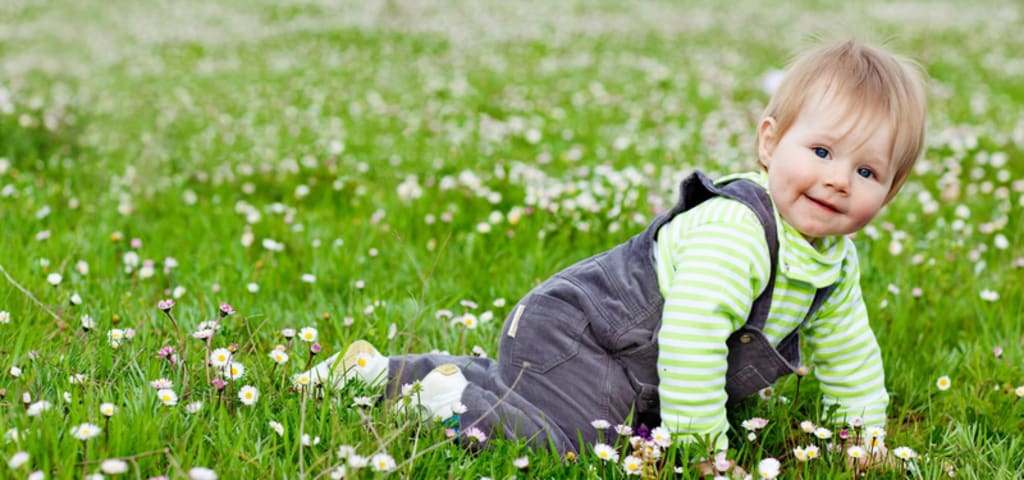
Infant education refers to the process of promoting the physical and mental development of infants and improving their intellectual and emotional qualities through various educational means and methods from birth. The focus of infant education is to pay attention to early education, because babies at this stage are the most sensitive and susceptible. Correct and scientific baby education can lay a good foundation for children's future.
Infant education refers to the cultivation and promotion of intelligence, language, emotion, behavior and other aspects of infants and young children aged 0 to 2. For many new parents, baby education can bring up many questions. What exactly is proper infant education? What kind of education is better? What should I pay attention to?
With regard to proper infant education, the first thing to emphasize is that infants and young children are not yet fully mature physically and mentally, so stimulating children's potential and improving their learning and life skills should be the main goal. Specifically, baby education can be carried out in the following ways:
Provide a safe and comfortable living environment for babies, so that children can feel the care and warmth of parents and caregivers in families or nursery institutions.
Consciously make eye contact with children many times, provide children with a large number of expressions with clear meaning and simple language, stimulate children's language ability and enhance children's self-awareness.
Hands-on operation is the main way for infants and young children to move. Some safe toys can be provided as an opportunity to promote their cognitive and intellectual development.
Establish positive social interactions and encourage children to express their emotions and feelings, but also abide by the child's personality and behavioral patterns.
To sum up, proper infant education should not only help the child's development, but also respect the child's needs and personal development schedule, and create an environment of love and respect for the child.
In addition to proper baby education, special attention is also required when it comes to baby care. First of all, children need rich and natural ingredients to ensure their nutritional supply; second, their skin is very delicate, and they need to change diapers frequently to keep them clean and dry; they also need to master the correct breastfeeding and sleeping patterns to cultivate children's healthy living habits.
Finally, it is worth reminding that every child has its own growth track and development law. Parents should insist on patience, tolerance, attention and support, and reasonably carry out infant education and care according to the individual needs of children. Creating a good family atmosphere for the healthy growth of children, creating a happy, caring, respectful and safe environment is the most important thing parents should do!
1. Cultivation of infant cognitive ability
1. Multiple sensory stimulation
After birth, babies are very sensitive to external objects, whether they are sight, hearing, touch, taste or smell. Therefore, parents should provide children with a variety of sensory stimuli, such as rich colors, diverse sounds, different touches, etc., to help build the baby's perception system.
2. Respect the learning rhythm
Every child learns at a different pace, and newborn babies are even more so. Parents should patiently observe and respect their children's learning rhythm, and don't expect them to master too much knowledge and skills too early, and don't overly heavy educational plans, so as to avoid causing children's rebellion.
3. Hand-foot coordination
The development of hand-foot coordination is an important part of developing cognitive abilities because it is a way of enriching life. Parents can prepare a variety of climbing toys, music bands, and challenging movement exercises for their children to help develop their baby's hand-foot coordination.
4. Image recognition and language skills
The baby's brain can't recognize objects at the beginning. Parents can help develop the baby's image recognition ability by showing the baby objects and toys of various colors, shapes, sizes and materials; at the same time, during the baby's language learning process, parents We should also use appropriate language templates for communication to help develop children's language ability.
2. Improve baby's emotional cognition
1. Parent-child relationship cultivation
Parents are the first experiencers and shapers of babies, and a positive parent-child relationship is conducive to the healthy development of children's emotions. Ways to establish a good parent-child relationship include: pay attention to observe children, respect children, establish emotional connections, and spend more time with children.
2. Pay attention to the baby's emotional experience
Babies are very sensitive to emotional experience, and parents need to show tolerance, understanding and trust according to the child's situation. Parents should patiently record their children's emotional changes, and use physical contact and verbal communication to help children express their feelings.
3. Observe the baby's emotional cognition of self and others
Parents should pay attention to the construction and development of infants' emotional experience of self and others during the cognitive process. Parents can accompany their children to play






Comments
There are no comments for this story
Be the first to respond and start the conversation.